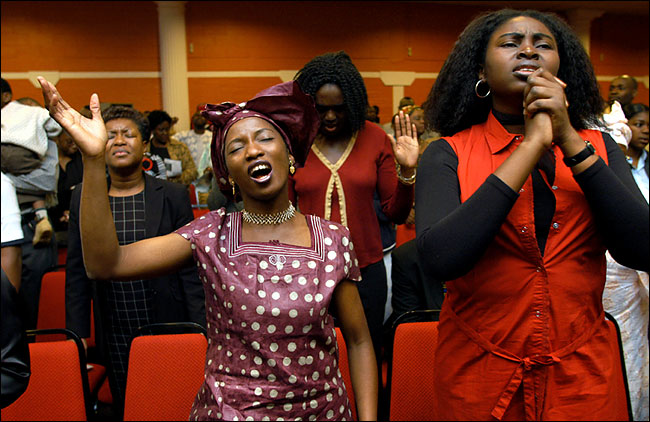By Bena Nekesa
Every Sunday, churches fill with worshippers lifting their voices in song and bowing their heads in prayer. But not far from the pews, standing at the back or pacing quietly outside, are the maids: women hired to serve in homes, still working even in God’s house.
“I carry the baby, feed her, and even walk to the altar during thanksgiving,” says Phiona Nabifo, 22, a maid at a home in Mukono.
“By the time church ends, I haven’t heard a single word of the service. It’s like I never attended,” she adds. For many domestic workers, Sundays are not a day of rest or worship. Instead, they accompany families to church not to pray, but to babysit. The same duties they perform from Monday to Saturday follow them into what should be a sacred hour.
Shared responsibility, not mere delegation
Some parents are beginning to realise the gravity of this. Juliet Katisi, a mother of three, admits that for a long time, she never considered how her maid experienced church.
“I’ve realised that sometimes we’re so focused on praying that we forget these girls also need that time with God. It’s something I’m now more conscious of.” she says.
She and her husband have started sharing childcare duties during church. “If the baby is awake, I carry her for a while; then her older daughter helps. We allow the maid to sit and listen, especially during the sermon,” Katisi says.
Such arrangements are rare but essential. Many parents still expect their maids to remain on duty throughout the service—watching the children, walking them about, even missing Holy Communion or altar calls, all while the rest of the family concentrates on worship.
Call from the pulpit
Fr Stephen Masinde, a priest at Situmi Parish in Namisindwa District finds this pattern troubling.
“Church is a place of renewal. Everyone needs that time to focus on God, to listen and reflect. If someone is present but distracted the entire time, then they are physically here but spiritually absent,” he says.
He urges families to view Sunday service as an opportunity to uplift everyone in the home, not just themselves.
He says: “If a maid carries the load all week, let her be free to worship too. Faith must not only be preached; it should also be shared.”
Sadly, for many domestic workers, church becomes merely a change in scenery. The work continues, just in different clothes.
“They even forget we are human. You wake up tired, dress up, and go to church only to end up chasing the baby while they close their eyes to pray,” Nabifo says.
Beyond pay cheque
Some parents argue that bringing maids to church is for safety or convenience, claiming the maids know the child better, or that it is simply easier if the babysitter handles the baby. But this convenience often comes at the cost of someone else’s spiritual nourishment.
A better approach, many believe, is shared responsibility. That means encouraging older children, both girls and boys, to assist. Fathers too must step in, not just during worship, but throughout the child’s upbringing.
“Some people think maids should do everything just because they’re paid. But money doesn’t take away their need to be treated well. Spiritually, they are no different from us,” Katisi says.
It is also worth remembering that many of these women are young and away from their families. Some are fresh from school, others are mothers themselves, and many have dreams beyond domestic work. They deserve moments of peace and reflection.
Two-way effort
Domestic workers, too, must carry themselves with respect and diligence.
“Yes, we need to be treated fairly. But we should also do our work well. You can’t expect respect if you’re always lazy or disrespectful,” Nabifo says.
As with any relationship, balance is key. Maids who work hard and behave responsibly build trust. But employers must also recognise that fairness extends beyond wages.
In some homes, there is a positive shift: maids are considered part of the family, assisted with minor tasks, included in prayer time, even appreciated during special moments. These homes are few, but they offer a glimpse of what is possible when dignity is shared.
Fr Masinde puts it best: “If you believe church is a place where God meets us, then let everyone in your household meet Him, not just those in the front pews.”
As more families reconsider how they involve domestic workers during worship, one question must linger: If they are more than babysitters at home, shouldn’t they be more than workers in church?





